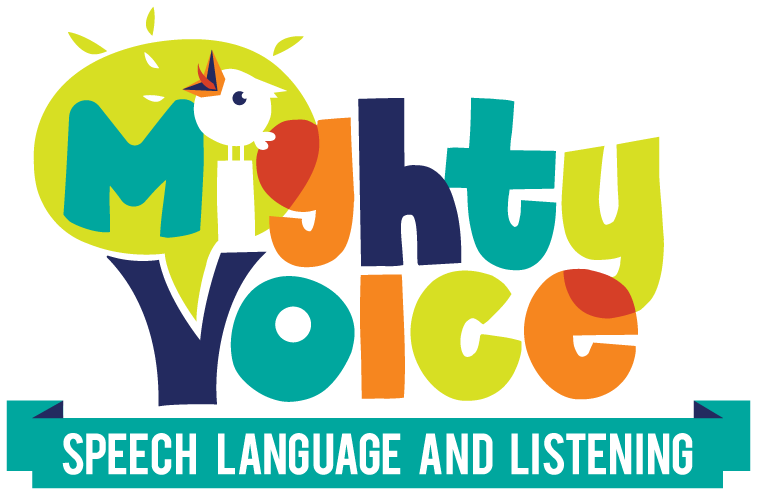I will be the first to admit it–the first time I heard the term “auditory verbal therapy” and saw a definition, I thought “Hmm, but how is that different than good speech and language therapy?” Maybe you’ve had the same thought. As I’ve been working on my certification, I’ve been thinking a lot about this question, and want to share some of my thoughts on it with you.
First, a Note on Terminology
Okay, so first…auditory verbal or listening and spoken language…why are there so many terms? I wasn’t sure myself, so I asked over in the Hearing First professional community (there’s a parent community over there too, go check it out!) Beth Walker Wooten answered with this:
Auditory-Verbal Practice is the approach that results in Listening and Spoken Language outcomes. For parents as the end consumer making decisions for their child regarding their desired outcome, Listening and Spoken Language (LSL) is easily understood and more clearly communicates with parents about the outcomes possible today.
There’s also this article that clarifies some of the history of the terms and how they’ve evolved over time. For the purposes of this blog, I mostly use listening and spoken language since I think it’s easier to understand.

So, What’s the Difference?
Okay, so here’s what I’ve figured out as far as the difference between speech therapy and auditory verbal therapy. When you see a speech language pathologist, they are often working with children on language and speech sounds.
Speech sounds are the articulation or enunciation part–how you say each sound, whether you have a lisp or not, whether or not you can say your R or L sounds. Language is what you do with those sounds–do you know how to put words together into phrases and sentences. When you do put words together, can you put the right endings on the words, or are you using the right words at all? Can you understand the difference between similar sentences like “My mom took the dog for a walk” and “My dog took my mom for a walk.”
A child in traditional speech therapy might work on some listening activities, like listening to themselves to see if their speech sounds are correct, or telling the difference between a “good R” sound and a “not so great R” sound. Or maybe they listen to understand the patterns and word order to understand sentences.
But, for the most part, basic hearing and listening skills are already in place when you go to speech therapy. All SLPs have education in graduate school in audiology and aural rehabilitation, but in typical speech and language therapy the hearing and listening systems are intact and usually (not always) don’t need a whole lot of focus. We don’t typically have to teach children to listen and hear, it just happens automatically when everything works correctly.

Listening and Spoken Language
When you have an SLP who is focusing on auditory verbal or listening and spoken language with students who are deaf or hard of hearing, that whole hearing and listening system isn’t working. You have to specifically focus on it and address it. As Dr. Carol Flexer says, the ears are the doorway to the brain for sound, and hearing occurs in the brain, and kids with hearing loss have a problem with that doorway.
Their technology (hearing aid, cochlear implant, FM system, etc.) becomes that doorway for their auditory system. But, because as Dr. Flexer says this technology isn’t a perfect replica, we need to give them enriched input. And, we need to explicitly teach skills that other children probably developed naturally without anyone teaching them.
This is where a listening and spoken language specialist, auditory verbal therapist, or really good speech language pathologist come in. And yes, there are “regular” SLPs who understand and can do the auditory work needed with our kiddos with hearing loss, but parents can’t and shouldn’t assume every SLP has these skills.
Therapists with listening and spoken language training understand the auditory system in depth, and what it takes to make listening and spoken language a probable outcome. Here are just a few of the things these specialists understand and help children learn:
- How to detect sound (know that sound is happening somewhere around them)
- How to discriminate sound (know that a sound with a high pitch is different than a sound with a low pitch)
- How to identify sound (understand that the sound they’re hearing goes with mom because it’s her voice, or the sound they’re hearing goes with their toy car because it’s the sound of the horn beeping)
- How to comprehend sound (understand what sounds are, what they mean, and understand speech and language)
Listening and spoken language specialists also understand how the auditory system and these listening skills, along with technology use and the environment, etc., influence a child’s language and speech skills. They also coach families, and help families understand these processes so that they can carryover learning at home.

It’s Speech Therapy….PLUS
So I’ve started to think about and describe listening and spoken language, or auditory verbal therapy as a sort of “Speech Therapy Plus.” It’s everything that a good speech language pathologist knows and does in regular speech therapy, plus all of the hearing/listening/auditory brain development stuff.
Do You Really Need a Specialist?
But do you really need a listening and spoken language specialist, or auditory verbal therapist? Well, yes, and maybe no…if you have a child with a hearing loss and want them to learn to listen and talk, you need someone with specialized skills and experience.
One of the easiest ways to ensure your therapist has that is to look for the LSLS, Cert. AVT (Listening and Spoken Language Specialist, Certified Auditory Verbal Therapist) designation, or someone working toward that (like I am). When you work with someone who is certified, you know that at a minimum they have:
- The same degree and certification as any other SLP
- Had at least 80 additional hours of continuing education in listening and spoken language
- Worked with a mentor for 3-5 years to improve their therapy with auditory verbal techniques
- Completed at least 900 hours of therapy with children who have hearing loss
- Had the recommendations of families and and professionals they’ve worked with in therapy
- Passed a national exam
Like I mentioned before, that are some excellent SLPs who have the knowledge and skills to provide great services to children with hearing loss, but don’t have the certification. In that case, it’s really up to parents to investigate. You’ll have to ask what kind of continuing education your therapist has done, what they know about auditory development and technology, what kind of mentoring and training they’ve had in using auditory verbal techniques.
